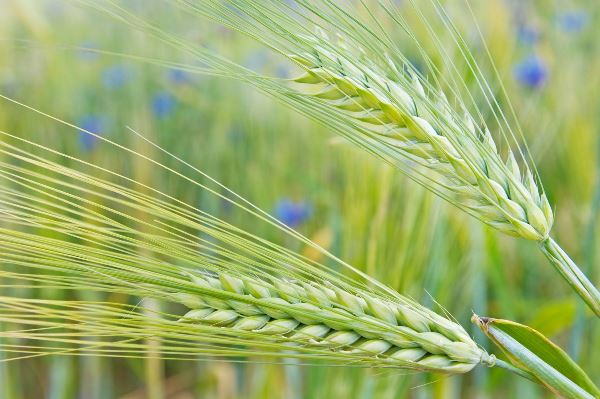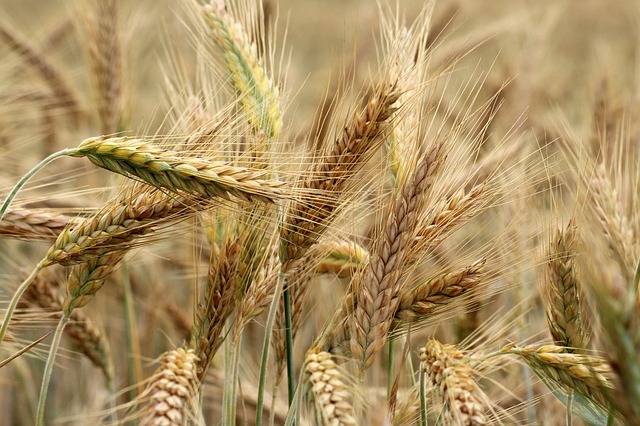
Products
Wheat
Wheat – under construction
Feed barley
Feed barley – under construction
Búza EN
Búza tartalma EN
RIZOLIQ – the natural nitrogen
Thanks to the cooperation of Galldorf Zrt. / Euralis Kft. / Hechta Kft., which started in 2019, Rizoliq Top S soil inoculant, which has been successfully applied worldwide on 12 million hectares, has become available to our soybean varieties. Rhizobium japonicum is able to bind atmospheric nitrogen specifically in symbiosis with soy. Nitrogen fixation itself is a series of complex biochemical processes during which nitrogen molecules in the air are “bound” in the root nodules, or more precisely reduced to ammonia, which in this form can now be used as a source of nitrogen for the host plant. The amount of atmospheric nitrogen fixed in this way is very significant. Most of it nourishes the soybean, and some of it is used in the soil, in the follow-up crop. It is common practical experience that winter cereals following soybeans make good use of the nitrogen “left behind” by the soybean.
Argentina is one of the ancestral countries of soybean production and it is here that Rizobacter (www.rizobacter.com) was founded in 1977, a company which is today the world leader in soybean inoculants. This company now sells biological bacteria products for 12 million hectares in more than 30 countries around the world. Rizobacter’s product Rizoliq Top S can be applied to the seed before the seeds are bagged, thanks to the fact that the product is made up of two parts. One part of the product is the bacterial preparation itself and the other part is a special additive that protects the bacteria and keeps them alive on the seed surface for a long time. The two substances are applied together to the seed surface at the seed factory. Rizoliq Top S contains two highly effective and resistant strains of nitrogen fixing bacteria to maximize biological nitrogen fixation. The inoculant contains the bacteria at a high, 1×1010 concentration. Soybean seeds treated with Rizoliq Top S bacteria are available in bagged packs and some soybean varieties from Euralis can be purchased with it.
Amalgerol EN
Medicine for the plant, medicine for the soil
Amalgerol is the market leader of plant conditioning products in Hungary. Amalgerol is a dark brown liquid with an oily smell and feel, composed of plant extracts, essential oils and mineral oils. Certified by the University of Innsbruck, Amalgerol is made from 100% non-GMO ingredients and is fully biodegradable and absorbable after application without any environmental impact.
Our ancestors used organic fertilisers regularly to ensure the biological viability of the soil, the survival of soil bacteria and the maintenance of soil organic matter. Modern crop production uses fertilisers to replenish soil nutrients. Without fertilisation soil biological activity is reduced, soil bacteria die, stalk residues decompose slowly and soil humus content decreases. As the humus content decreases, the water-holding capacity of the soil decreases, it becomes dusty and structureless, dries out deeper in drought, does not retain water, silt up in heavy rainfall and then turns into a chemically dry soil. To maintain soil fertility, our soils must be managed, as this has a direct impact on the productivity of the crops grown in the area. When soil is treated with Amalgerol, due to its uniquely high organic oil content it spreads over a huge interfacial area on soil particles, providing a large habitat for soil microbes. In these oily interfaces, where oxygen, moisture and nutrients are present, soil bacteria thrive, and Amalgerol’s easily absorbable carbon content provides soil bacteria with an immediately usable nutrient, allowing beneficial soil organisms to thrive and multiply rapidly. A well measurable consequence of this intensive soil life is an increase in soil’s carbon dioxide production. The carbon dioxide both loosens the soil, and reacts with water forming carbonic acid, which makes various nutrients available to plants. The leaching of bound calcium improves soil pH and increases soil temperature, which also helps plants to germinate quickly and uniformly. Over time, the soil regains its normal water-holding capacity and the decomposition of stalk residues is accelerated. Amalgerol treatment increases the amount of mycorrhizae living on the roots of plants sevenfold. The mycorrhizae live in symbiosis with the roots of the plants and like the “extended arms”, able to supply water and nutrients to the root and thus to the plant from a much greater distance.
Amalgerol treatment after the occurrence of plant stress factors (drought, frost, wind, pesticide drift, etc.) mitigates the yield reducing effects of these factors. The use of Amalgerol increases the nutrient uptake of the plants which recover more quickly from the adverse effects of the environment. Amalgerol contains trace elements that are already absent from the soil and are essential for plants (tungsten, vanadium, selenium, etc.), although in small quantities. It also contains plant hormones (auxin, gibberellin) which enable plants to withstand stressful situations with vigorous growth and increase their yields.
The dose of Amalgerol is 4-5 l/ha for soil treatment and 3-4 l/ha for plant treatment. Amalgerol which falls on the soil when treating plants also has a beneficial effect.
Stress management of spring crops can be managed with Amalgerol.
Takarmány árpa EN
Takarmány árpa tartalma EN
Pig


The PIC408 has the biggest market share of all Piétrain terminal sire line products in North and Western Europe. In the Netherlands, not less than 25% of pig farmers use this genetics in intensive pig farming. Thanks to its balanced carcase combined with excellent technical fattening characteristics, PIC Piétrain’s offspring is an ideal choice for fatteners. The PIC Piétrain genetics is very popular and extremely suitable for the sale of piglets and fattening pigs on the German market. To meet the needs of the market, the PIC408 is divided into two groups: the PIC408G (formerly PIC408) and PIC408M (formerly PIC426). Both PIC408G and PIC408M focus on robustness.
Benefits:
- PIC’s genetic improvement program has existed for over 20 years.
- Stronger, more viable piglets, less piglet loss.
- They have excellent feed efficiency rates, so they can be raised with lower feed costs.
- Low drug use compared to competing genetics.
These are the benefits that we have chosen for this genetics to use it in our contract pig farming.
Malting barley


BOJOS
Very productive spring malting barley with good malting quality
Breeder: Agromag Kft., Hungary
• Excellent stamina and tillering
• Moderate resistance to diseases
• Excellent malting quality
• Screenings is excellent, 10-20 % better than other varieties
• Hectolitre weight 64-66 kg, recommended seed rate: 400-470 germs/m2

XANADU
High yielding spring barley
Breeder: Saaten-Union, Germany
• Excellent ecological adaptability, highly favored by the brewing industry
• It also tolerates the shortened, dry vegetation period
• Resistant to powdery mildew
• Average height, average hectolitre weight
• Recommended seed rate: 400-450 germs/m2
Soybean
ES COMANDOR
CHARCTERISTICS
Maturity: 000, sowing is recommended in all the soy-growing areas of Hungary
Growth type: semi-determinate
Yield potential: 4.5 t/ha
STRENGTHS
Outstanding productivity within its maturity group
Strong stem, not inclined to lodge
High level of protein
Very good initial development, early flowering
Very good Sclerotinia tolerance
Due to its short growing season, it can be cultivated after an early-harvested cereal culture, but germination irrigation can be necessary
RECOMMENDED SEEDING RATE
600-700 (1.000/ha)
- The use of herbicides containing Pendimethalin is not recommended.
ES MENTOR
CHARCTERISTICS
Maturity: 00, sowing is recommended in all the soy-growing areas of Hungary
Growth type: semi-determinate
Yield potential: 4.9 t/ha
STRENGTHS
N°1 variety sold in Europe, market leader in its maturity group in Hungary
NÉBIH (National Food Chain Safety Office of Hungary) standard
A perfect combination of high yield, protein content and stability
Very high level of protein (43%)
Short, not inclined to lodge at all
Uniform ripening, fast water loss, early and safe harvest
RECOMMENDED SEEDING RATE
550-650 (1.000/ha)
The use of herbicides containing Metribuzin is not recommended.
ES DIRECTOR
CHARCTERISTICS
- Maturity group: 00
- Growth type: semi-determinate
- Yield potential: 5,4 t/ha
STRENGTHS
-
- It can be grown safely in all soybean growing areas in the country
- Euralis latest generation of soybean varieties with outstanding protein content
- Its yield potential is significantly above average within its maturity group
- Very fast and intense initial development
- Not inclined to lodge (fall over) and seed shattering
- RECOMMENDED SEEDING RATE
- 500-550 (1.000/ha)
The use of herbicides containing the active substance metribuzin is not recommended during cultivation!
ES ADVISOR
CHARCTERISTICS
Maturity: 00/0, sowing is recommended in all the soy-growing areas of Hungary
Growth type: indeterminate
Yield potential: 5 t/ha
STRENGTHS
Outstanding productivity
Strong stem, not inclined to lodge
Protein level above average
High Sclerotinia tolerance
RECOMMENDED SEEDING RATE
450-550 (1.000/ha)
ES MEDIATOR
CHARCTERISTICS
Maturity: I, recommended in the middle/southern parts of Hungary
Growth type: indeterminate
Yield potential: 5,5 t/ha
STRENGTHS
It has one of the highest yield potential of all Euralis soybean varieties, with intensive technology up to
5 t/ha yield is possible at farm level
Average first pod height is 13 cm which makes harvesting easier and safer
Not inclined to lodge
Sclerotinia tolerance above average
RECOMMENDED SEEDING RATE
400-500 (1.000/ha)